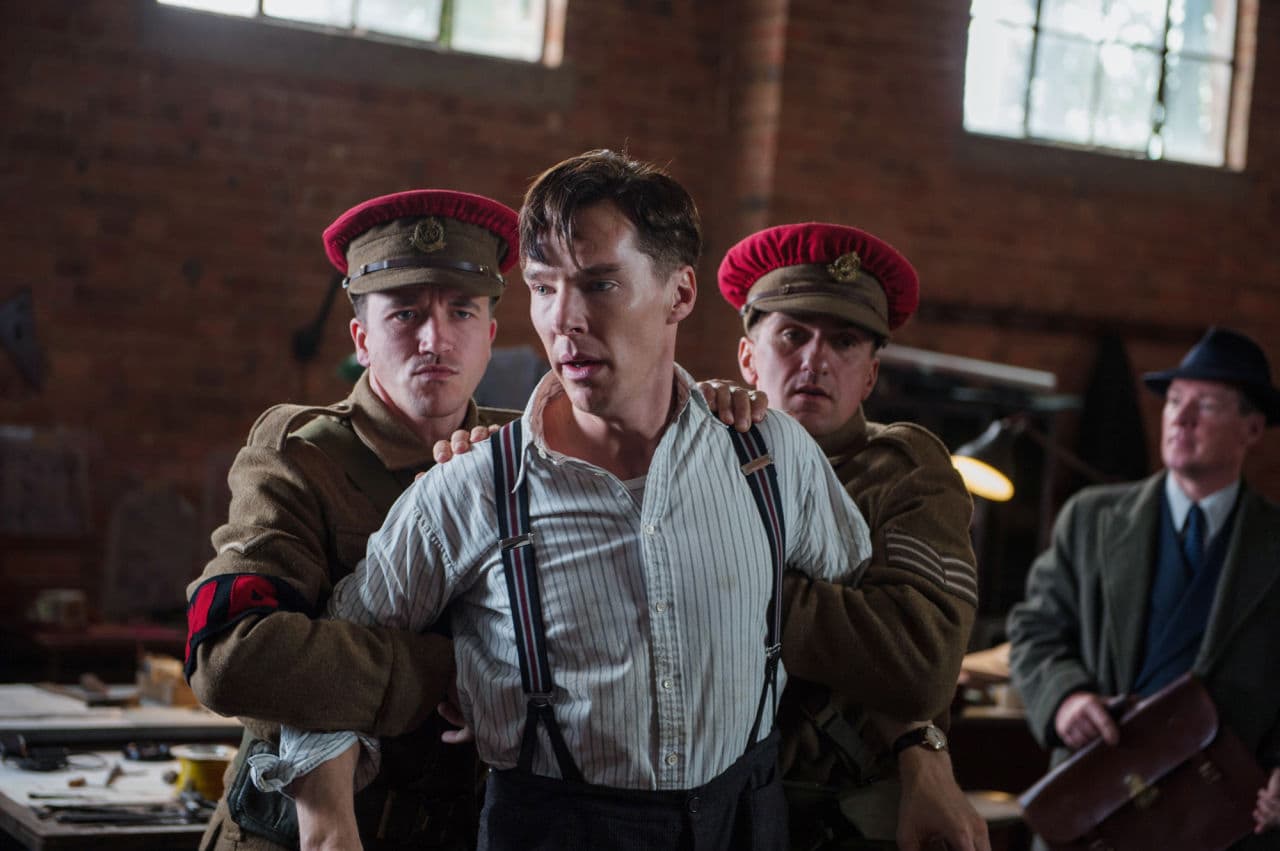Advertisement
Alan Turing's Family Asks British Government To Pardon 49,000 Men
ResumeThe family of Alan Turing, the man depicted in the film "The Imitation Game," is submitting a petition to the British government today that calls for pardoning 49,000 men who were prosecuted for being gay.
Turing's work helped crack German military codes during World War II. He was convicted in the 1950s of "gross indecency" for his relationship with a 19-year-old man.
Turing was pardoned in 2013, and now his relatives are asking for the government to do the same for thousands of others. Human rights activist Peter Tatchell joins Here & Now's Robin Young with details.
Interview Highlights
How the movie has raised awareness of the anti-gay laws

"It’s been absolutely fantastic the way that 'The Imitation Game's' raised public awareness about Alan Turing’s enormous contribution not only to breaking the Nazi enigma codes during the Second World War, which probably brought the duration to a close two years or three years earlier than it might have been, but also he is the founding father of modern computing. So, for him to have been treated in that way, prosecuted for a consenting, victim-less, same-sex relationship and then forced or pressured to undergo chemical castration, which ultimately drove him to depression and suicide, that’s a truly shameful thing."
On the anti-gay laws and the number of men convicted
"It’s called gross indecency, and sounds ghastly and horrible, but all it just simply means is any sexual contact between men, which can involve sex, but also can involve mere touching or caressing or kissing. Under this law, an estimated 49,000 men were convicted in Britain, but there were also three other anti-gay laws, so the total number convicted was probably in the region of 50,000 and 100,000 men."
On why the family is calling for pardons for the rest of the men
"It’s obviously a very bad legal principle to make law or give pardons on the basis of whether someone is famous or important, or not."
"It’s obviously a very bad legal principle to make law or give pardons on the basis of whether someone is famous or important, or not. Just because Alan Turing was a great code breaker and mathematical genius does not mean that he should be singled out for special treatment. So we’re simply saying that there should be equality in law when it comes to granting pardons. If it’s good enough for Alan Turing, it must logically, and I think ethically, also say the same about all the other men convicted for consenting, adult, same-sex relations."
On the convicted men who are still alive
"They want the same justice as Alan Turing got. Probably somewhere between 10,000 and 15,000 of these men are still alive today. So for them, this is a real, live, personal issue. Let’s not forget, these men were not only convicted, but because of the shame and stigma associated with such convictions, many of them were sacked from their jobs, evicted from their homes, their marriages broke up, many were attacked - violently attacked and assaulted by neighbors and people in the street - and a very substantial minority attempted or did actually commit suicide. So, really the cause of justice for these men must continue."
Guest
- Peter Tatchell, human rights activist and director of the Peter Tatchell Foundation. He tweets @PeterTatchell.
This segment aired on February 23, 2015.